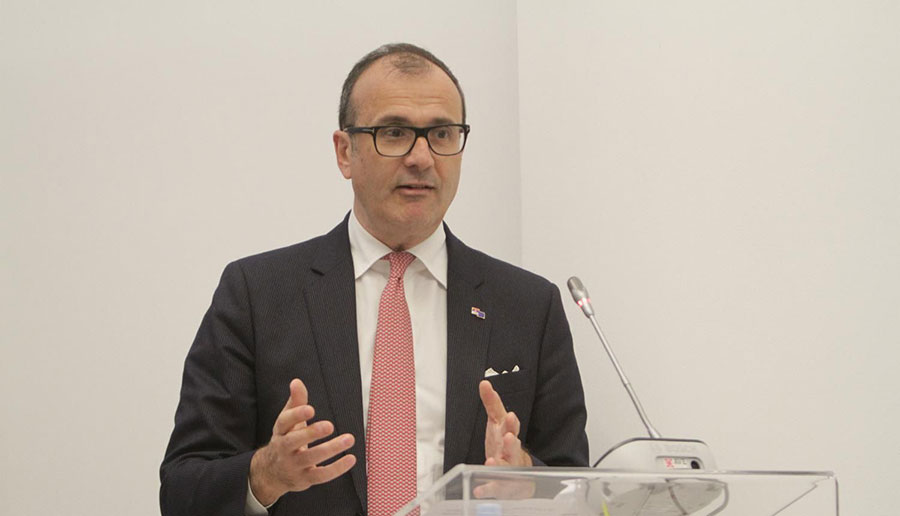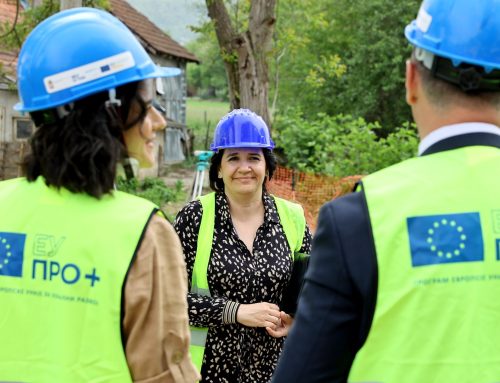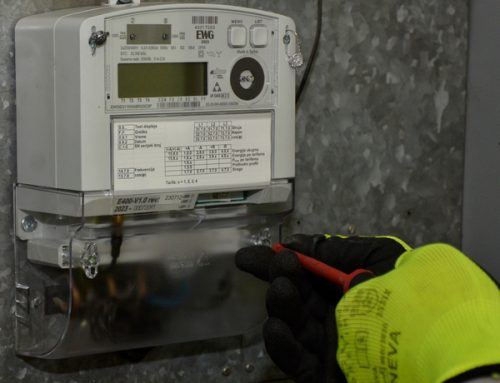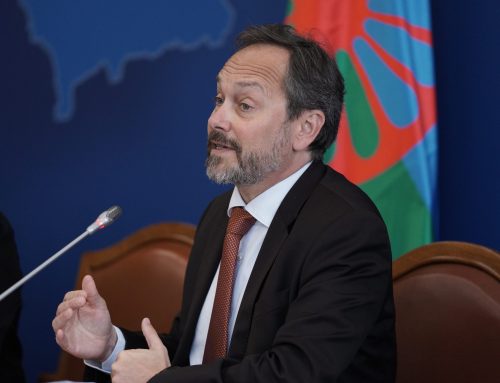Check against delivery
Dear Mr Obradovic (President of the Commission),
Dear Mr Ljajic (Deputy Prime Minister and Minister of Trade, Tourism and Telecommunications),
Dear Mr Selakovic (Secretary General of the President),
Presidents of the regional antitrust agencies,
Ambassador of Japan,
Ladies and gentlemen,
It is my great pleasure to attend this anniversary celebration to mark 12 years of existence of the competition authority in Serbia.
I would first like to congratulate to President Obradovic, to all members of the Commission Council and to the entire staff of the Commission Secretariat for the good work and track record demonstrated over the past year.
I am very happy but also proud to note that Serbia, with continuous support of the EU, has come a long way in regulating and implementing anti-trust and merger policy over the past 12 years.
As indicated in the latest European Commission Annual Report on Serbia that was published just three days ago, Serbia made good progress on anti-trust and is considered to be moderately prepared for accession in the area of competition policy that comprises chapter 8. Anti-trust rules are largely aligned with the relevant acquis and the institutional framework is well established with the Commission for Protection of Competition at its heart.
With legislative and institutional frameworks of anti-trust policy largely aligned, I would like to focus today on two points:
- Competition policy in the context of Serbia’s EU accession process and
- Enforcement of competition policy.
- COMPETITION IN THE CONTEXT OF SERBIA’S EU INTEGRATION PROCESS
Competition policy represents vital part of the EU’s internal market, which is the biggest in the world. Competition policy is critical for the overall consolidation of market economy in Serbia. Only by establishing credible competition policy can Serbian economy eventually benefit of the EU single Market and gain the capacity to cope with competitive pressure and market forces within the EU.
In the context of accession negotiations, competition is treated as a separate chapter which proved to be one of the most comprehensive chapters for negotiations between the EU and enlargement countries. Negotiations concerning chapter on competition were not opened yet – not because of anti-trust legislation which is already in line with the acquis – but of pending the fulfilment of six opening benchmarks that are all related to the area of state aid.
The good state of anti-trust legislation however does not mean that the Commission should be complacent with its results. On the contrary, I would like to encourage the Commission to continue fostering the capacity of the institution for better enforcement and stronger advocacy of competition law and standards in Serbia.
The EU support in this area is long-standing and it dates back to 2001 when we provided the first technical expertise for assessment of consistency of Serbian competition regulations to the EU standards at the time. More importantly:
- The Commission benefited from two technical assistance projects between 2008 and 2015 worth a total of EUR 4,6 million plus a supply contract for delivery and installation of forensic software for the CPC in 2012 that was worth another EUR 0,8 million.
- The CPC will soon benefit from another EU-funded project in the form of twinning with the Italian competition authority worth EUR 1 million. The project is supposed to start in June 2018 and to last for 24 months.
And before moving on to competition enforcement, I would like to support the Government’s efforts in drafting the new law that would regulate protection of competition. We look forward to receiving the initial draft for comments. Please note that the relevant European Commission services in Brussels as well as my staff in the Delegation stand at your disposal for all questions or pieces of advice you might need in this regard.
- COMPETITION ENFORCEMENT
With legislative and institutional frameworks of competition policy in Serbia largely aligned with the requirements set by the Stabilisation and Association Agreement and the acquis, I will focus on effective implementation and enforcement of competition policy.
This should be done through well-grounded and reasoned decisions that consistently penalize infringements of competition with initiation of investigations both upon request of interested parties and ex officio. Effective competition enforcement also requires imposition of dissuasive fines and promotion of the leniency programme.
Serbian Commission for Protection of Competition managed to assert itself as an independent authority by building up its solid track record that should provide predictability to the economic operators in the long-run. In this respect, I would like to underline a few important developments that we noted in the previous two years:
- I would like to welcome the intensified enforcement activity of the Commission. As indicated in our Annual Report, the number of antitrust cases and the relative size and significance of companies under investigation has increased. The Commission investigated behaviour of both private and state-owned companies equally, giving its important contribution for market liberalisation of certain sectors. Moreover, the level of fines imposed over the past two years significantly increased in comparison to the previous period. More work remains to be done in traditionally state-owned sectors like energy and transport where more decisive steps towards market liberalisation and unbundling of service provision is required both by the Serbian competition authority and the relevant regulators,
- The Commission issued seven opinions concerning draft legislation that could affect competition over the past two years. We strongly support this practice that the Commission should use also as competition advocacy tool. Lawmakers, notably the Government, are crucial in this process as they should include the competition authority into their formal consultative mechanism whenever certain draft piece of legislation could affect competition. The Government also needs to ensure a systemic follow-up to the Commission’s opinions related to draft legislation or other activities of public institutions that might affect competition.
- I would like to support the Commission to continue with its proactive role in monitoring developments in different sectors through its sector analyses. In-depth research requested for performing sector inquiries in sensitive sectors is a good tool for the competition authority to gain comprehensive understanding of the sector and to continue observing trends and developments in the future, but also an indirect competition advocacy tool for market participants.
- Finally, capacity of the judiciary to deal with competition cases needs to be significantly strengthened. The relevant courts should invest in specialisation of court panels that would be competent to review complex cases in this area which requires very specific knowledge. Consistent jurisprudence following the line of thinking of the peer EU institutions would ensure effective competition advocacy and spreading of competition culture in Serbia.
You can rest assured that the EU will continue underlining the importance of the Commission building-up its enforcement record in the years to come!
Let me conclude making two points
First – Competition policy is a key tool to promote a sounder economic environment, a level playing field, a driver for economic growth, a key tool for linking Serbia’s economy to the EU single Market. Serbia’s economy is integrating by the day into the economy of the EU. Serbian exports to the EU tripled in the past eight years, reaching 9.9 billion euros in 2017, which represent 64% of the overall Serbian exports. 81% of Foreign Direct Investment comes from the EU. Only in 2017, EU FDI totalled 1.5 billion euro, generating 200.000 jobs in Serbia/
Second – the ultimate beneficiaries of effective and efficient competition enforcement will be the Serbian citizens. They will benefit from wider choice and lower prices for goods and services they purchase, by enjoying the possibility to choose the best value for their money.
I wish this Conference the best success.




